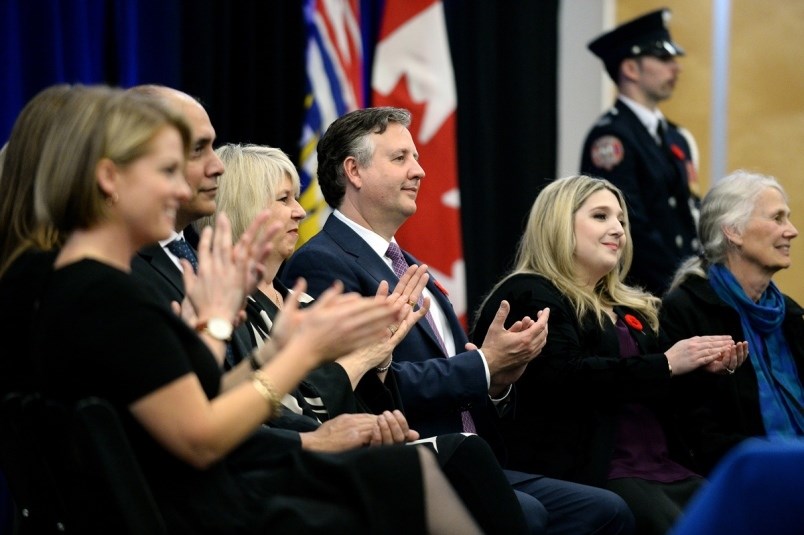Mayor Kennedy Stewart and some of Vancouver’s city councillors say they were encouraged by Premier John Horgan’s announcement Wednesday to begin reopening sectors of the economy in mid-May.
But all agreed the city has a direct role in ensuring the plan has a positive effect in how B.C.’s biggest municipality helps its own operations and wider economy recover in the weeks and months ahead.
“From the city point of view, we need to be laser focused on what we can do to help our local businesses operate in the new normal, including streamlining our processes like business licensing and permitting,” said Coun. Sarah Kirby-Yung in an email to Glacier Media.
More than 15,000 businesses temporarily or permanently closed in Vancouver because of the pandemic, with the city losing up to $5 million per week in revenues from a month-long suspension of parking enforcement and closure of community centres and other facilities.
The city also laid off 1,800 employees while non-union staff and management, along with the mayor and councillors, took 10 per cent pay cuts. Council meetings have been conducted via a dial-in system, and that system will be tested out this month with a public hearing.
Horgan didn’t specifically address how his plan affects the operations of municipal government. But he emphasized that gradually allowing more economic and social activity will be done in coordination with public health officials, businesses and labour organizations.
Kirby-Yung said she was glad to see the government’s restart plan is being done with a focus on safety by having business sectors create their own reopening plans in conjunction with WorkSafe BC.
“I am delighted to see that hair salons, restaurants, cafes and pubs can reopen, if they are compliant with health orders, and that they will be given guidance to support safe reopening,” Kirby-Yung said.
Coun. Lisa Dominato echoed Kirby-Yung’s comments about expediting permits and licences to help the local economy recover. She also said it was important to enable residents “to move around safely through the reallocation of road space for physical exercise, small gatherings and outdoor queuing and vending.”
Stewart said public health and safety “sits at the core of our response and will continue to do so” as the city works to help people get back to work and the economy back on track.
“It is a tough balance to achieve, and while the new guidelines from the province help, a lot of uncertainties still remain for many key sectors, including music, tourism and bars,” he said in an email.
The province’s restart plan, which kicks in May 19, includes allowing small social gatherings and a resumption of elective surgeries and health services such as physiotherapy, dentistry, chiropractors and in-person counselling.
Provincial parks will open for day use, more businesses that were not deemed “essential” under the state of emergency will reopen and the B.C. legislature will reconvene for regular sittings.
Coun. Christine Boyle said she was pleased to hear Horgan acknowledge that B.C. needs to continue combatting the opioid crisis and climate change, despite the challenges of the pandemic on the economy.
“Our recovery plans need to keep these in mind, reducing inequality and speeding up, not delaying, our climate plans,” Boyle said in an email.
Coun. Pete Fry said he hoped people were feeling “a little lighter today, and a little more confident about sticking to the plan” rolled out by public health officials to slow the transmission of COVID-19.
“I think it’s a validation of the efforts and sacrifices British Columbians have been making, and it’s a good cue to stay optimistic yet cautious and resolute,” Fry said in an email.
@Howellings



